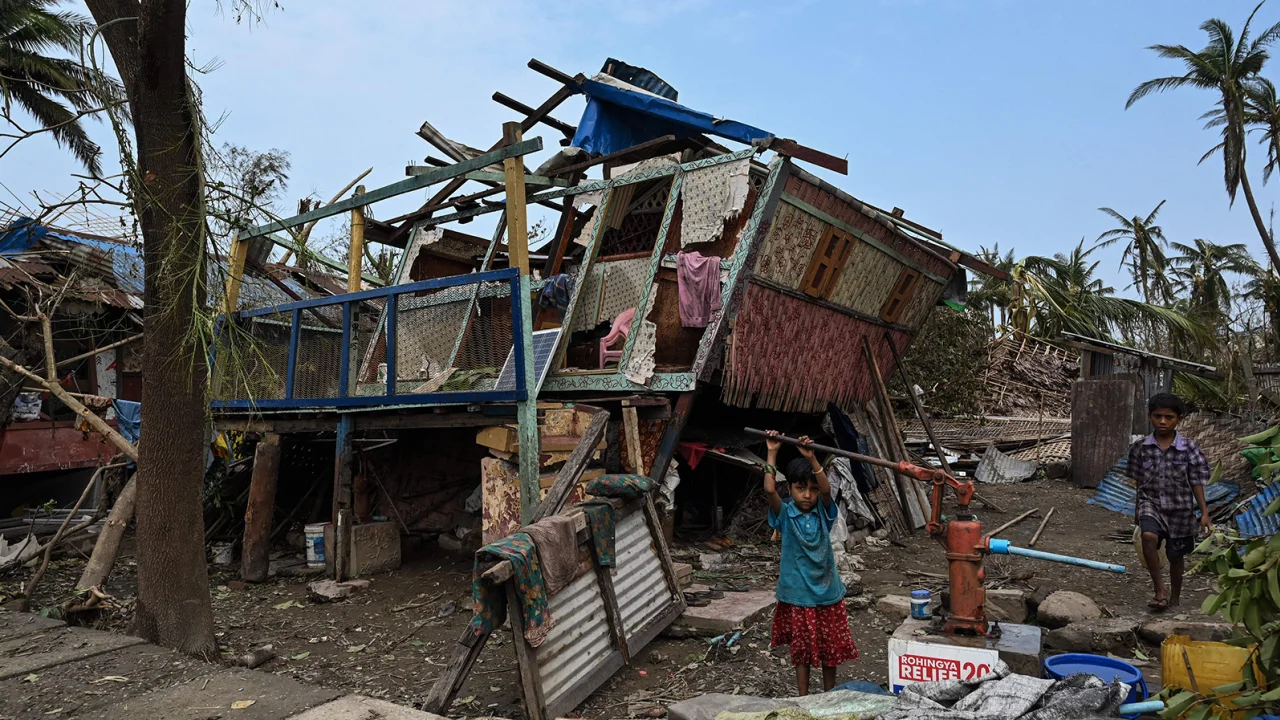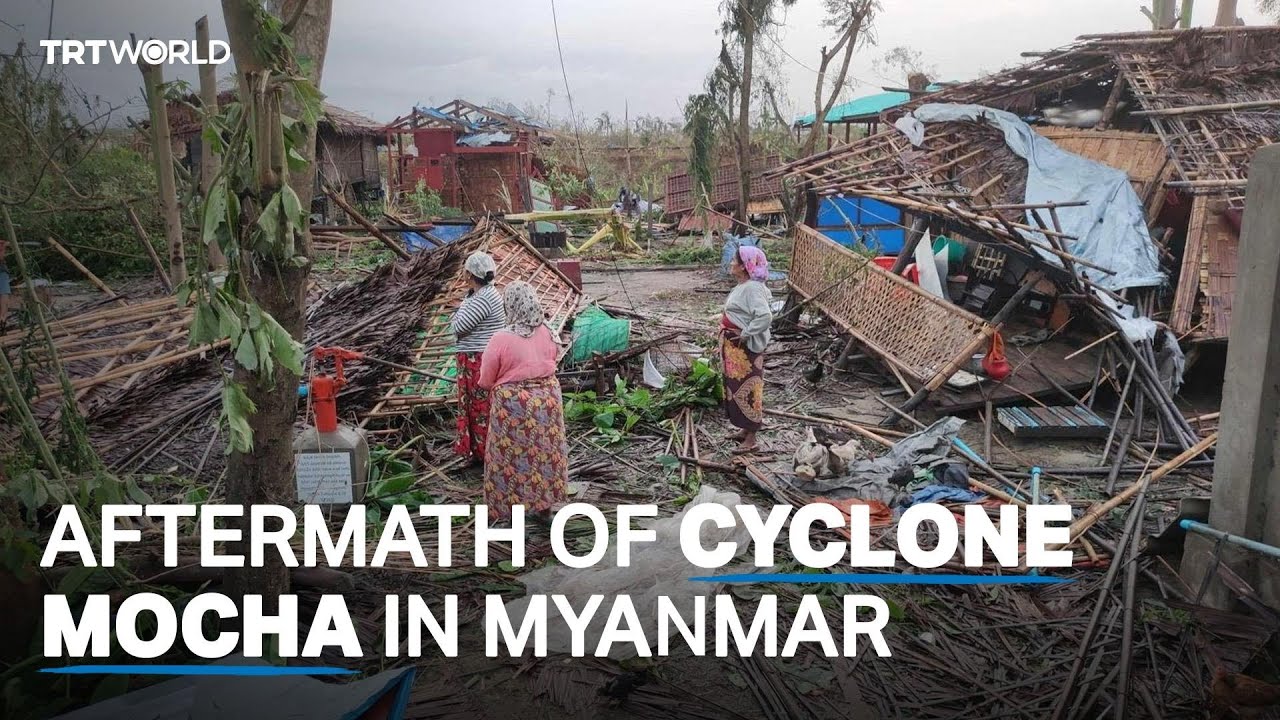Myanmar's Junta Hinders Humanitarian Access After Cyclone Mocha Devastates Rakhine State
Myanmar's Junta hinders humanitarian access after Cyclone Mocha devastates Rakhine state. Cyclone Mocha, one of the strongest storms to hit the country, has caused widespread devastation, resulting in casualties and leaving thousands of people in urgent need of assistance.
Author:Rhyley CarneyReviewer:Paula M. GrahamMay 19, 20238K Shares106.9K Views

Myanmar's Junta hinders humanitarian access after Cyclone Mocha devastates Rakhine state.Cyclone Mocha, one of the strongest storms to hit the country, has caused widespread devastation, resulting in casualties and leaving thousands of people in urgent need of assistance.
United Nations agencies are still negotiating access to affected areas several days after the cyclone struck, highlighting the challenges faced in delivering crucial aid to those in need.
United Nations Agencies Face Delays In Accessing Cyclone-Hit Areas
United Nations agencies are facing challenges in gaining access to cyclone-affected communities in Myanmar's Rakhine state.
Negotiations with the military junta are ongoing, four days after Cyclone Mocha struck the country's coast as one of the most powerful storms in its history.
The devastation caused by the cyclone has resulted in hundreds of deaths and left thousands in urgent need of basic necessities such as shelter, clean water, food, and healthcare.
Rescue groups have warned of a potentially significant loss of life, but the exact number of casualties remains unclear due to flooding, blocked roads, and disrupted communication channels.
The storm has caused extensive damage to homes and infrastructure throughout Rakhine, an area that is already home to a large population of displaced individuals.
However, relief efforts have been hindered by the aftermath of the cyclone and pre-existing travel restrictions imposed by the military junta.

Aid groups ask Myanmar junta for access to disaster area
Urgent Call For Assistance And Funding
The need for travel authorization from the junta has been cited as a major obstacle preventing humanitarian actors from responding effectively to the cyclone's impact.
The United Nations' humanitarian office (OCHA) has expressed the urgent need for access to affected areas to assess the full scope of the humanitarian situation.
Additionally, the severe lack of funding poses another challenge to relief efforts, with less than 10% of the required $764 million humanitarian response plan currently secured.
History Of Aid Restrictions And Concerns For Vulnerable Communities
The current restrictions on aid access in Rakhine state raise concerns, given the region's history of political violence and the displacement of hundreds of thousands of people, particularly the Rohingya minority group.
In the aftermath of the 2017 military campaign, aid activities were suspended, and humanitarian access was denied to vulnerable communities, primarily the Rohingya population.
The military coup in 2021 further imposed travel restrictions on humanitarian workers and hindered access to aid.
Efforts are being made by various organizations, including the Myanmar Red Cross and relief agencies with a local presence, to provide assistance to those affected by the cyclone. However, unimpeded access to affected areas remains a crucial requirement for effective relief operations.
The Myanmar military junta's response to the cyclone and the extent to which it facilitates aid access will significantly impact the recovery and well-being of the affected communities.
The international community, including the United Nations and donor nations, is called upon to provide financial support and exert pressure to ensure that humanitarian assistance reaches those in need promptly and efficiently.
Final Words
The aftermath of Cyclone Mocha in Myanmar's Rakhine state has revealed the significant hurdles faced by humanitarian agencies in accessing affected communities.
The military junta's travel restrictions and bureaucratic constraints have delayed the delivery of vital aid and hindered assessment efforts.
The international community's support and pressure are essential in ensuring unimpeded access to affected areas and providing the necessary resources to alleviate the suffering of the cyclone victims.
Urgent action is needed to address the immediate needs of the affected communities and support their long-term recovery and resilience.

Rhyley Carney
Author

Paula M. Graham
Reviewer
Latest Articles
Popular Articles